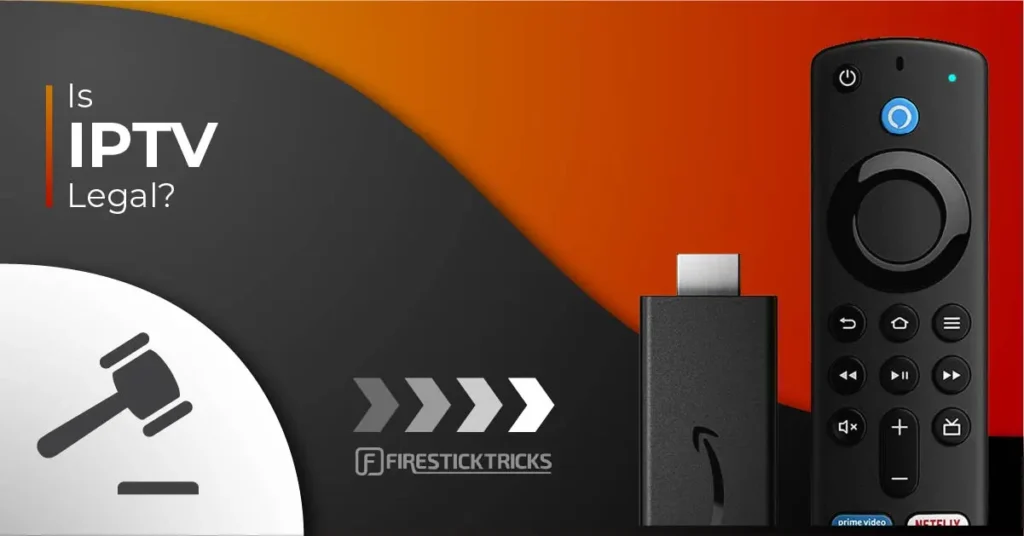
Is IPTV Subscription Legal? Everything You Need to Know in 2024
Table of Contents
- What is IPTV and How Does It Work?
- Is IPTV Subscription Legal? A Detailed Overview
- What Are the Risks of Using Illegal IPTV Services?
- How to Identify Legal IPTV Subscription Providers
- Is It Illegal to Subscribe to IPTV?
- IPTV Subscription Legalities: Country-Specific Information
- What to Do If You’re Caught Using an Illegal IPTV Service
- The Future of IPTV and Changing Legalities
- Frequently Asked Questions (FAQs) About IPTV Subscription Legality
- Conclusion: Stay Safe and Choose Legal IPTV Subscriptions
What is IPTV and How Does It Work?
What is IPTV?
IPTV (Internet Protocol Television) refers to the delivery of television content over the internet, instead of through traditional satellite or cable broadcasts. With IPTV, users can watch television shows, sports events, movies, and other content through a broadband internet connection, typically via streaming services.
Unlike conventional cable or satellite systems, IPTV works by converting the television signal into a digital format and transmitting it through your internet connection. The IPTV service provider sends the content to the user’s device through the internet protocol, enabling access on a variety of devices, including smart TVs, smartphones, tablets, and desktop computers.
How IPTV Works
IPTV services can be divided into three main categories:
- Live Television: Streaming live broadcasts of TV channels, just like you would with cable TV.
- On-Demand Content: Accessing movies, TV shows, and documentaries on-demand, without the need for scheduled programming.
- Time-Shifted Media: This allows viewers to watch a program after it has aired, offering flexibility to pause, rewind, or skip content.
One of the key differences between IPTV and traditional TV is that IPTV uses the internet to deliver content, which means you need a stable internet connection to use the service.
Is IPTV Subscription Legal? A Detailed Overview
Legal IPTV Subscriptions
The legality of an IPTV subscription depends on the service provider and the content they distribute. A legal IPTV subscription is one where the service provider has obtained proper licenses to distribute content. These providers sign agreements with content owners, such as TV networks, movie studios, and sports leagues, to legally stream their content over the internet. Popular examples of legal IPTV services include:
- Hulu Live
- Sling TV
- YouTube TV
- FuboTV
These services charge a subscription fee, and the content they provide is licensed, meaning they are fully compliant with copyright laws. They operate transparently, allowing you to check their content agreements and terms of service.
Illegal IPTV Subscriptions
On the other hand, illegal IPTV subscriptions refer to services that provide unauthorized access to copyrighted content without the necessary licenses. These services often stream content such as live sports events, movies, and TV shows without obtaining the required rights. Illegal IPTV providers typically offer access to a large range of channels and content for a low price, sometimes even for free.
However, using illegal IPTV services is against the law, and users can face legal repercussions if caught. These services often operate in a gray area, with minimal customer support, unclear terms, and frequently unreliable services.
What Are the Risks of Using Illegal IPTV Services?
Legal Consequences
When it comes to illegal IPTV subscriptions, the risks are substantial. Not only can you face fines, but in some cases, criminal charges may be levied for using or distributing pirated content. The Digital Millennium Copyright Act (DMCA) in the United States, for example, prohibits the unauthorized distribution of copyrighted materials. Similarly, the European Union has strict regulations around digital piracy, and copyright infringement can result in fines or jail time for the individuals involved.
Some examples of legal action against illegal IPTV services include:
- In 2019, a UK court ordered the shutdown of several illegal IPTV streaming sites, with millions of pounds in damages awarded to the copyright holders.
- In the U.S., ICE (Immigration and Customs Enforcement) agents have seized thousands of illegal IPTV domains as part of a crackdown on piracy.
Security Risks
Illegal IPTV services often lack proper security protocols, which puts users at risk of malware, viruses, and data theft. Subscribing to these services means you might be exposing your personal data to criminals or hackers. These services are often hosted on unsecure websites or through unreliable third-party apps that don’t guarantee the privacy or safety of your data.
Poor Service Quality
Another risk of using illegal IPTV subscriptions is poor service quality. These services tend to offer unreliable streaming with frequent buffering, poor video quality, and unexpected service interruptions. Users might also find themselves without access to the channels they want, as the providers continually change or remove content to avoid being caught by copyright authorities.
How to Identify Legal IPTV Subscription Providers
Signs of a Legal IPTV Service
To avoid legal trouble and poor service, it is essential to identify legal IPTV subscription providers. Here’s what to look for:
- Licensing Agreements: Legal IPTV services have agreements with content owners and distributors. Look for the “licensed” label or check the provider’s website for details about its content partnerships.
- Transparent Terms of Service: A legal IPTV provider will offer clear and easily accessible terms and conditions that explain their service and your rights as a customer.
- Reputable Payment Systems: Legal IPTV services use secure and reliable payment methods, such as credit cards, PayPal, or direct bank transfers.
Red Flags of Illegal IPTV Services
Some common red flags to watch out for when identifying illegal IPTV services include:
- Unbelievably Low Prices: If an IPTV service offers an extensive list of channels and content for a very low price or for free, it is likely illegal.
- Lack of Contact Information: If the provider’s website has no physical address, customer support number, or other identifiable contact details, proceed with caution.
- Unverified Content: Illegal services often promote access to exclusive sports events, pay-per-view channels, or popular movies without showing valid content ownership.
How to Verify IPTV Legitimacy
To verify whether an IPTV service is legitimate:
- Check Licensing: Contact the content creators or networks to verify the IPTV provider’s license.
- Read Reviews: Look for reviews from reliable sources and feedback from other users to ensure the provider is legitimate.
- Research the Provider: Google the IPTV provider’s name to look for any reports of fraudulent activity or illegal services.
Is It Illegal to Subscribe to IPTV?
Subscriber’s Perspective
It is not illegal to subscribe to an IPTV service in general. However, subscribing to an illegal IPTV service is against the law. As a subscriber, you need to ensure that the service provider you choose has the appropriate licenses and rights to broadcast the content they offer. If you unknowingly subscribe to an illegal IPTV provider, you may be at risk of facing legal consequences, especially if the provider is caught by authorities.
The Role of Internet Service Providers (ISPs)
In some cases, Internet Service Providers (ISPs) may monitor and block access to illegal IPTV services. This is particularly true in countries where authorities crack down on piracy. Some ISPs in the U.S. and Europe cooperate with copyright holders to detect and prevent the use of illegal IPTV services. ISPs may send warnings or even take legal action against users who repeatedly access pirated content.
IPTV Subscription Legalities: Country-Specific Information
IPTV Subscription Laws in the United States
In the U.S., IPTV services must comply with the Digital Millennium Copyright Act (DMCA), which protects copyright holders and regulates the distribution of digital content. Providers that operate without proper licensing face serious penalties. The U.S. government has actively pursued illegal IPTV services, with many providers being shut down and their operators arrested.
IPTV Subscription Laws in the European Union
The European Union has strict laws governing IPTV and digital piracy. EU Directive 2001/29/EC ensures that content owners’ rights are protected, and piracy is penalized. In 2019, the EU enacted new measures to crack down on illegal IPTV services, increasing penalties for users and providers involved in piracy.
IPTV Subscription Laws in Other Regions
- Canada: IPTV laws in Canada are governed by the Canadian Radio-television and Telecommunications Commission (CRTC). IPTV services must comply with Canadian broadcasting laws to be legal.
- UK: In the UK, IPTV services are monitored by the Intellectual Property Office and the Police Intellectual Property Crime Unit (PIPCU), which actively tackles illegal IPTV services.
What to Do If You’re Caught Using an Illegal IPTV Service
If you are caught using an illegal IPTV service, you might receive a warning from your ISP or even a legal notice. Here’s what you should do:
- Stop Using the Service: Immediately unsubscribe from the illegal IPTV provider to avoid further legal issues.
- Switch to Legal Alternatives: Consider switching to a legitimate IPTV service that offers licensed content.
- Seek Legal Advice: If you have been accused of piracy or copyright infringement, consult with an attorney to understand your legal rights and obligations.
The Future of IPTV and Changing Legalities
The landscape of IPTV is changing rapidly. As more people turn to streaming services for television content, both legal and illegal IPTV services are growing in popularity. In the future, we can expect to see more stringent regulations, better enforcement of copyright laws, and increased availability of affordable legal IPTV alternatives.
Impact of Streaming Wars on IPTV Legality
As streaming giants like Netflix, Amazon Prime Video, and Disney+ expand their offerings, IPTV laws will likely become more complex. The rise of these platforms may change how television content is distributed and consumed, further affecting IPTV legality.
Frequently Asked Questions (FAQs) About IPTV Subscription Legality
Is IPTV subscription legal if I pay for it?
Yes, paying for an IPTV service does not make it illegal, as long as the service provider is licensed and offers legitimate content.
How can I tell if an IPTV service is legal?
Look for licensing information, customer reviews, and transparent terms of service. If the provider offers content without proper licensing or charges an unusually low price for access, it may be illegal.
Can I get in trouble for using illegal IPTV if I didn’t know?
Yes, ignorance of the law is not an excuse. If you use an illegal IPTV service, you can still face penalties or legal action.
Conclusion: Stay Safe and Choose Legal IPTV Subscriptions
In conclusion, while IPTV subscriptions offer convenient and modern ways to access television content, it’s crucial to choose a legal IPTV service to avoid legal issues, security risks, and poor service quality. Always verify the legitimacy of an IPTV provider, understand the potential legal consequences, and enjoy content through reliable, licensed platforms for the best experience.
By staying informed about the legalities of IPTV, you can confidently enjoy television content while staying compliant with copyright laws.
